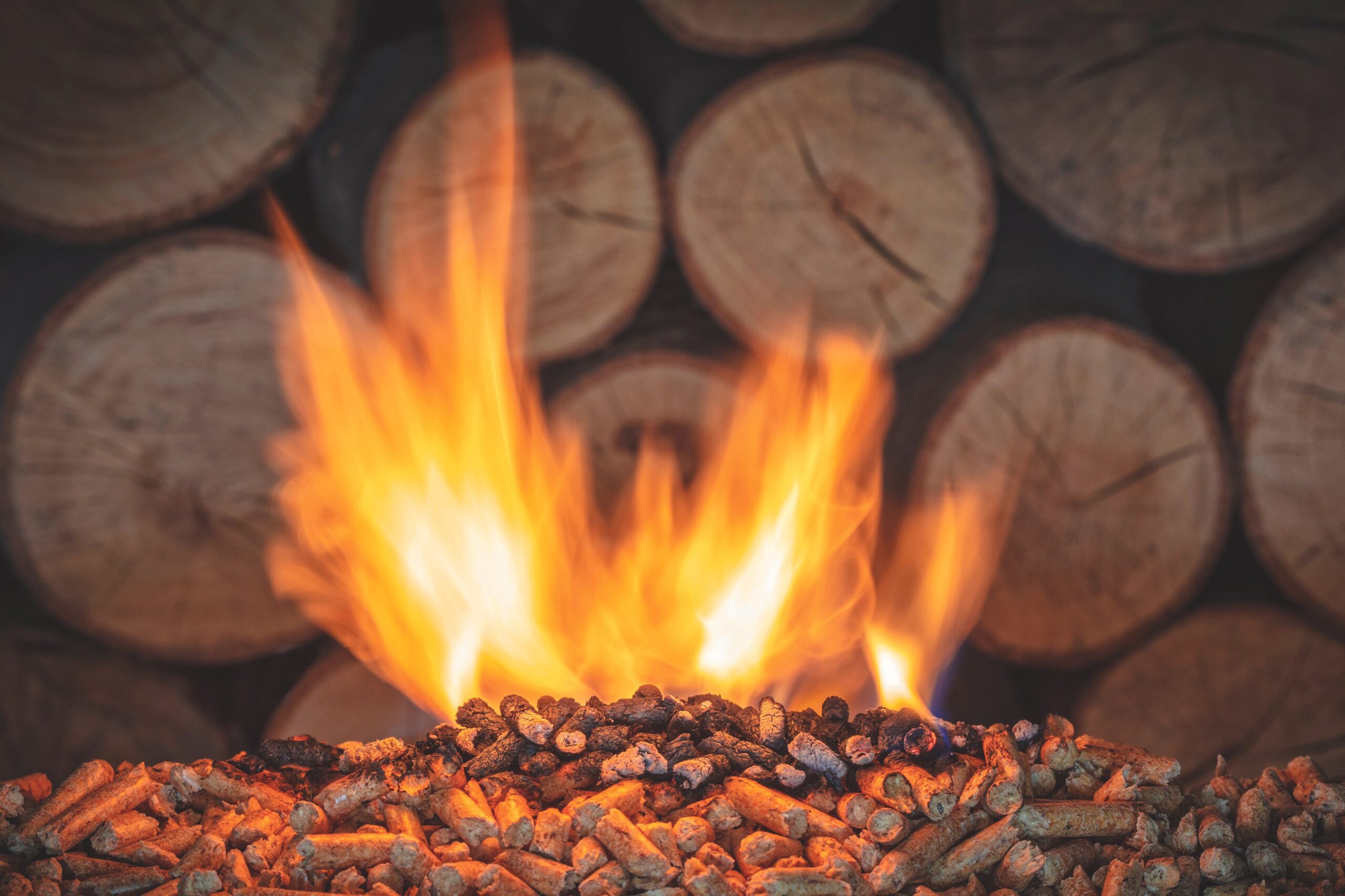John Manitowabi’s wood-pellet stove comfortably heats his home throughout the winter in Wiikwemkoong Unceded Territory in northern Ontario. His old diesel furnace has been relegated to backup status, where he’s happy to leave it; this new stove, which uses pellets made from regional logging scraps, saves him an estimated $400 per year on diesel.
Forest biomass — the practice of burning forestry byproducts to generate energy — isn’t perfect. Some environmentalists warn that it still generates carbon emissions and puts forests at risk of overharvesting. But it is nevertheless a viable option, and one that can have positive impacts for Indigenous communities.
You may unsubscribe from any of our newsletters at any time.
Manitowabi is the director of the Wiikwemkoong Department of Lands and Natural Resources. With the rise of fuel costs and concern about the climate crisis, the Wiikwemkoong Development Commission launched a project in 2020 to install wood- pellet heating systems in the community. Here, turning forest biomass into fuel sources like wood pellets reduces reliance on fossil fuels.
While biomass technically includes all parts of the tree, it most commonly refers to leftovers from the logging industry, like bark, sawdust and wood shavings. It has long been used as a fuel source, and northern Ontario already has five biomass power stations that use material from local sawmills and panel mills. Governments and industry advocates often tout forest biomass as a climate-friendly solution, but not everyone is convinced.
“Industrial biomass is not carbon neutral,” says Maya Menezes, a campaigner with the environmental advocacy group Stand.earth. “When there are rumblings of making biomass part of the energy grid in Ontario, we have to ask important questions.”
For David Flood, an Indigenous forester with Wahkohtowin Development who has spent 25 years advocating for Indigenous participation in northern Ontario’s forestry activities, making use of leftover forest biomass is about reciprocity.
“If you’re going to be respectful for what you take, you use it all — that’s what we do inherently in our culture,” he says. “If we utilize biomass, it’s helping the carbon balance.”
More on Broadview:
- Faith leaders urge Ontario gov’t to abandon proposed mega-highway
- Can the courts save us from the climate crisis?
- In ‘Dinner on Mars,’ food researchers redesign our agricultural system from scratch
That can only happen, however, if conservation and ecosystem health are treated as priorities. Right now, Flood says, wealth from the forestry sector isn’t flowing to Indigenous communities, and the logging industry is taking the most marketable parts of the forest and leaving the rest behind. Turning those underused parts of the tree into fuel provides a local energy source to replace diesel.
Flood advocates for a bioeconomy that looks holistically at how to make the best use of forest resources — for housing, energy, economic development — in ways that empower First Nations communities and support forest health.
Last March, the Ontario government announced its Forest Biomass Action Plan, a strategy to increase economic opportunities from forest waste. One of its objectives is to support Indigenous involvement in the forest biomass sector, something Flood helped negotiate. “If a stick of biomass moves, First Nations need to be attached to the economic benefit of that wood,” he says.
The path away from fossil fuels isn’t black and white. It needs to account for scale and what works locally. Each winter, John Manitowabi’s home will be heated primarily by local wood pellets. It’s worth remembering who stands to gain or lose from what goes up his chimney.
***
Kaarina Stiff is a writer and editor in Ottawa.
This column first appeared in Broadview’s March 2023 issue with the title “Fuel from the forest.”














